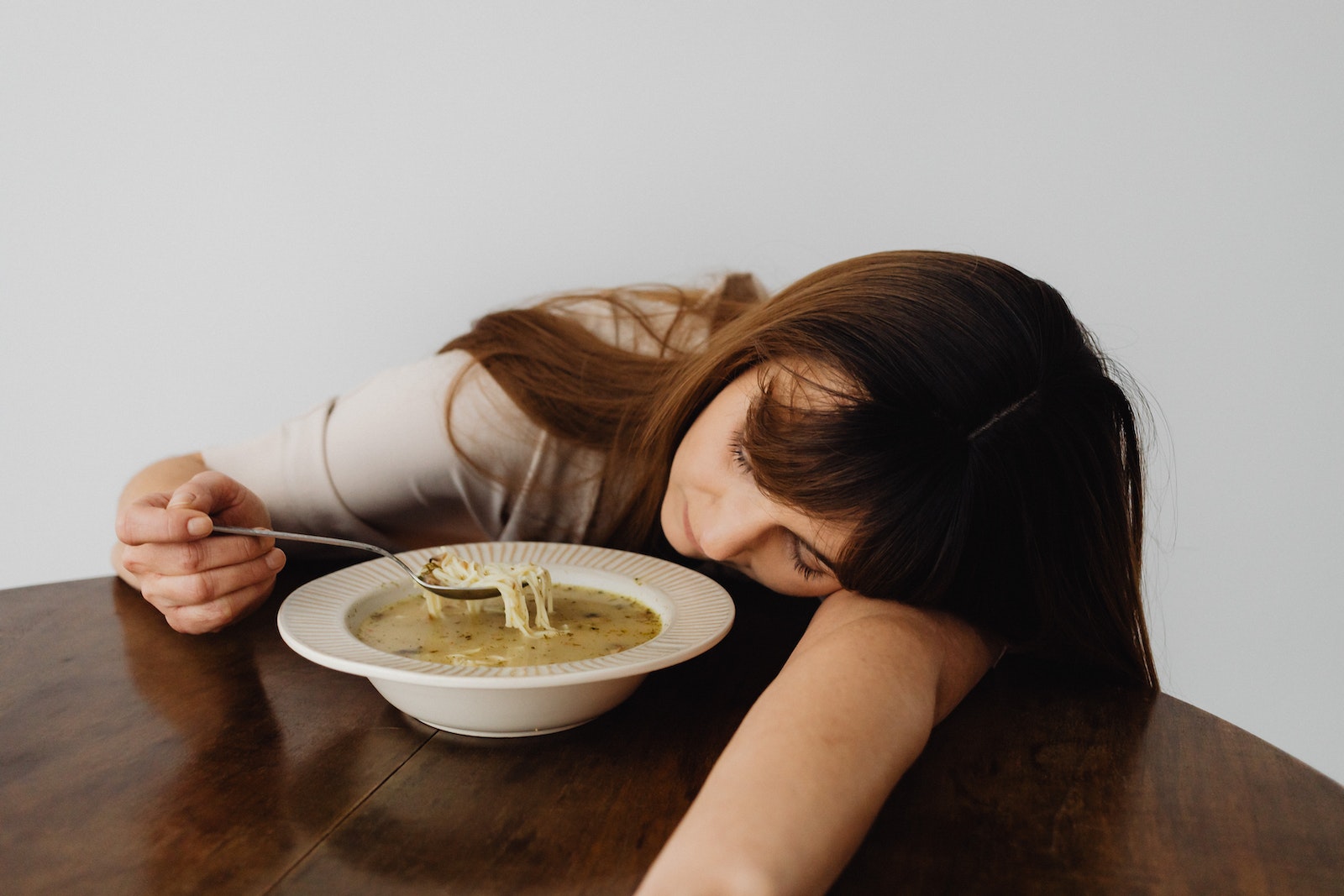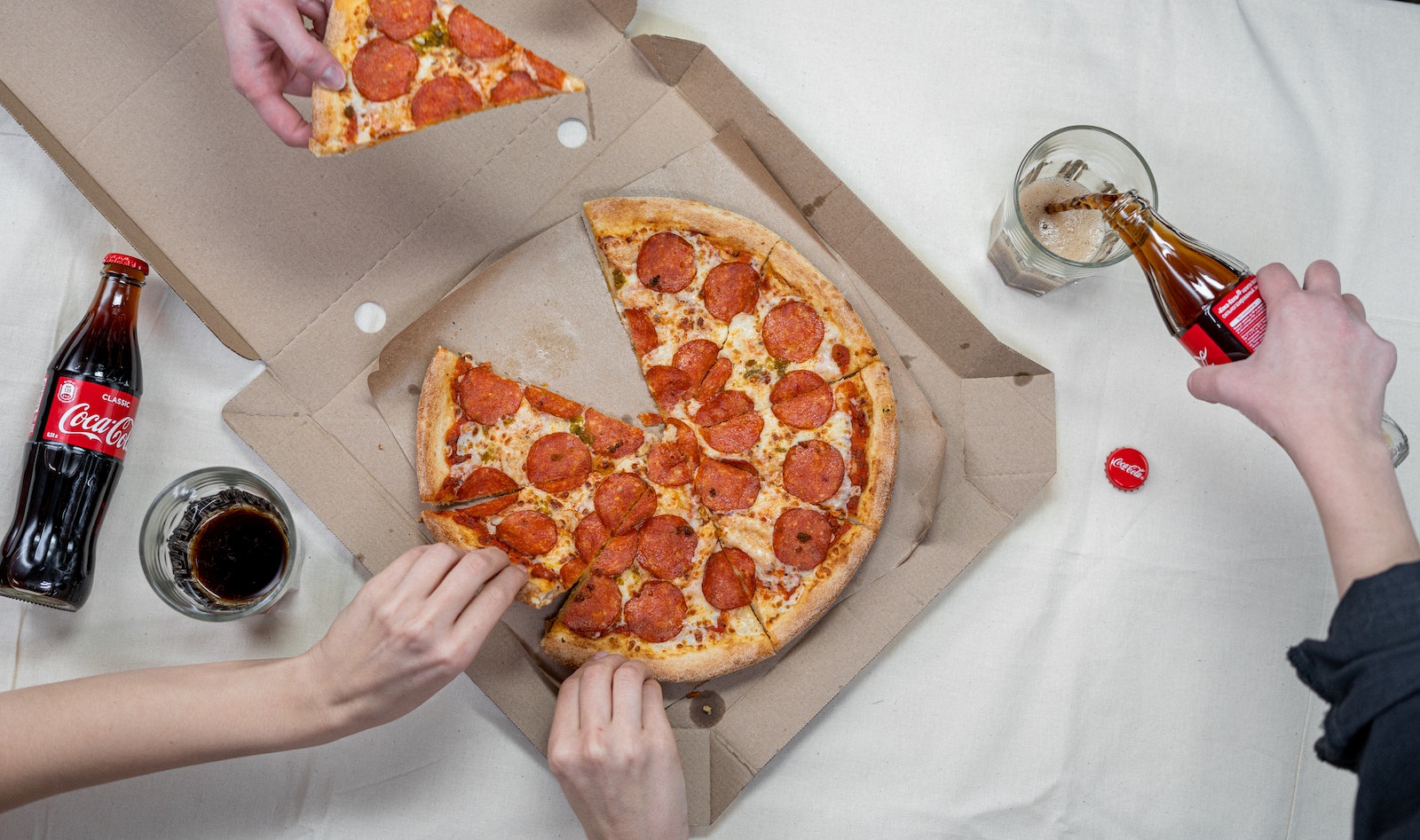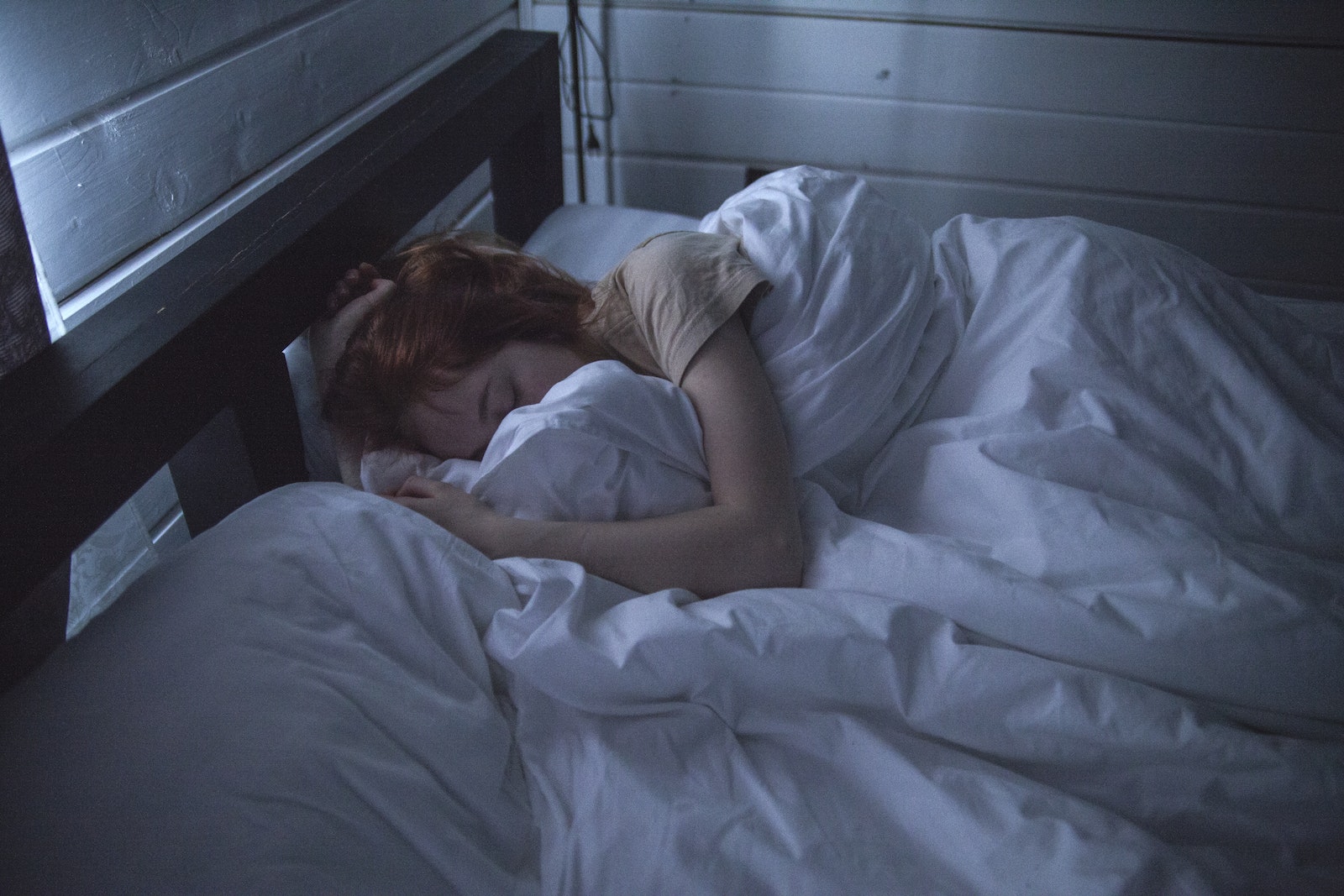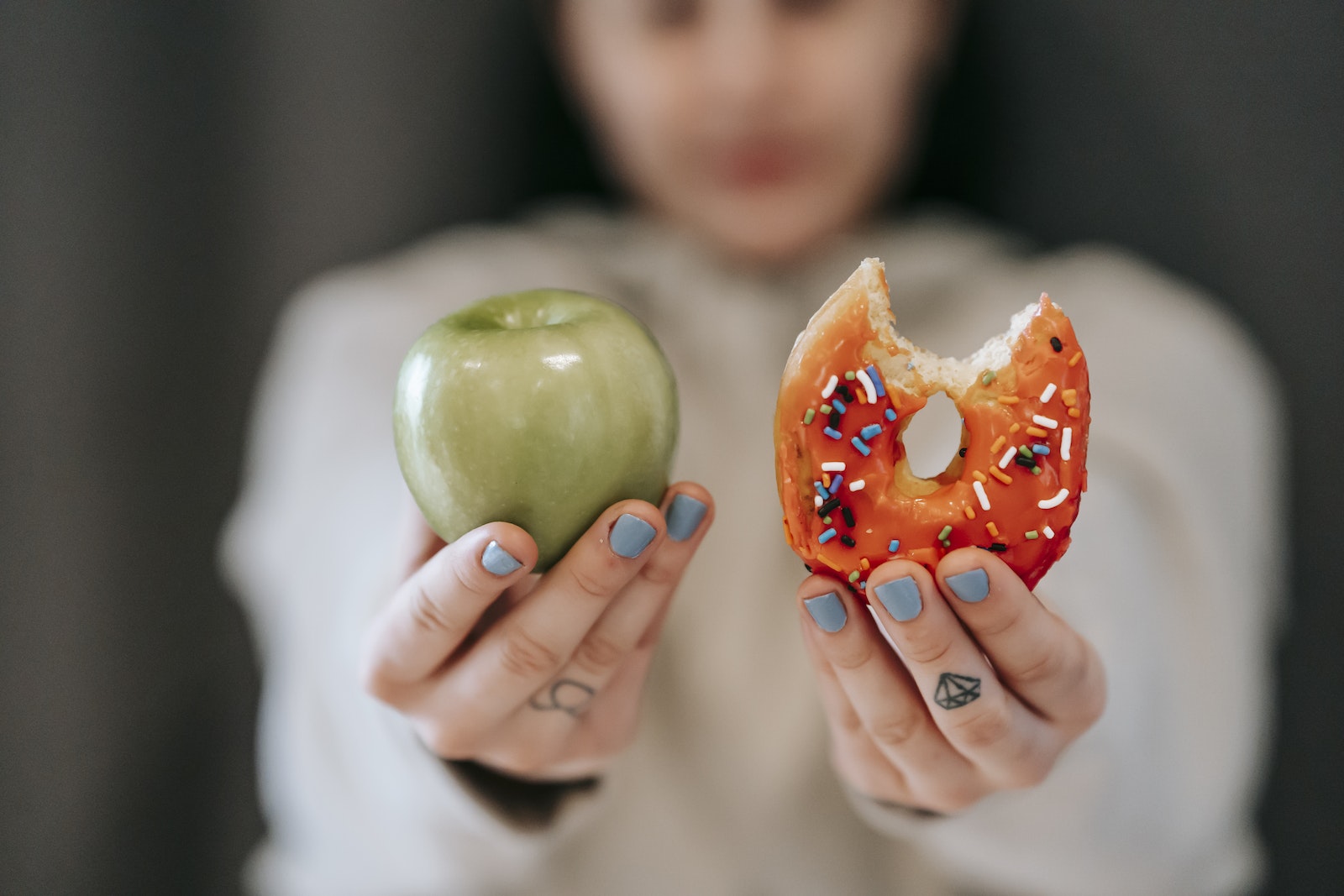Sleep deprivation is an all-too-common problem in today’s fast-paced world, affecting millions of people worldwide. The hustle and bustle of modern life often led to reduced sleep hours, which, unfortunately, can have significant consequences on our health and well-being. One of the most intriguing connections that researchers have discovered is the link between sleep deprivation and junk food cravings. In our previous blog we wrote about 7 Powerful Tips to Reduce Emotional Eating During Times of Stress. In this blog, we will delve into the fascinating science behind how sleep deprivation linked to junk food cravings and how it affects our decision-making processes, particularly when it comes to food choices.
The Science Behind Sleep Deprivation Linked to Junk Food Cravings
 Sleep plays a crucial role in regulating our appetite and hunger hormones.
Sleep plays a crucial role in regulating our appetite and hunger hormones.
When we don’t get enough sleep, our body’s hunger signals can go haywire, leading to an increased desire for unhealthy foods.
Studies have shown that sleep deprivation can alter the levels of hormones like ghrelin and leptin, which are responsible for regulating hunger and satiety.
Ghrelin, known as the “hunger hormone,” increases with sleep loss, while leptin, the “satiety hormone,” decreases, making us feel hungrier and craving more calorie-dense foods.
Understanding the Psychological Mechanisms
 Apart from hormonal changes, sleep deprivation profoundly impacts our emotional regulation and stress levels.
Apart from hormonal changes, sleep deprivation profoundly impacts our emotional regulation and stress levels.
The lack of sleep makes us easily irritable and emotionally vulnerable, leading to seeking comfort in the form of food.
During exhaustion, we find coping strategies like reaching for sugary or fatty snacks more appealing.
Psychological factors such as stress, anxiety, and low mood can intensify cravings for unhealthy foods as we seek instant gratification to soothe ourselves.
Consequently, this combination of physiological and psychological factors sets the stage for unhealthy eating habits and potential weight gain if not addressed promptly.
Sleep Deprivation’s Effect on Food Choices and Eating Patterns
 Sleep deprivation doesn’t merely affect our cravings; it also influences the types of foods we choose to eat.
Sleep deprivation doesn’t merely affect our cravings; it also influences the types of foods we choose to eat.
When we’re sleep-deprived, we become more prone to making impulsive decisions and opting for easily accessible and palatable options, which often means turning to junk foods.
The reward centers in our brains become more active when we’re tired, making the allure of unhealthy treats even stronger.
Moreover, sleep-deprived individuals tend to experience disruptions in their eating patterns, consuming meals at irregular times or skipping them altogether.
This erratic eating behavior further contributes to unhealthy food choices, making it challenging to maintain a balanced diet.
The Vicious Cycle: Sleep Deprivation and Unhealthy Eating
 The relationship between sleep deprivation and unhealthy eating is bidirectional and creates a vicious cycle.
The relationship between sleep deprivation and unhealthy eating is bidirectional and creates a vicious cycle.
On one hand, sleep deprivation leads to increased cravings for unhealthy foods due to imbalanced hormones and heightened stress levels.
On the other hand, indulging in unhealthy foods can disrupt sleep p atterns, exacerbating the sleep deficit.
For example, excessive consumption of caffeine or sugar can interfere with falling asleep or staying asleep.
As a result, the lack of quality sleep perpetuates the desire for instant gratification through unhealthy eating, further impairing sleep quality and overall well-being.
Cognitive Impairment and Decision Making
 A lack of sleep can significantly impair our cognitive functions, including decision-making abilities and judgment.
A lack of sleep can significantly impair our cognitive functions, including decision-making abilities and judgment.
We become more susceptible to making impulsive choices, especially when it comes to food.
Our willpower and self-control weaken, making it difficult to resist the allure of tasty, unhealthy treats.
The exhaustion experienced during sleep deprivation affects our prefrontal cortex, responsible for rational decision-making, leading us to prioritize immediate rewards like junk food over long-term health benefits.
Sleep Deprivation’s Impact on Food Reward Processing
 The brain’s reward system plays a crucial role in our cravings for certain foods.
The brain’s reward system plays a crucial role in our cravings for certain foods.
Sleep deprivation disrupts this reward processing, making food rewards more appealing and reinforcing the desire for unhealthy options.
This effect on the brain mirrors the patterns seen in addiction, as sleep-deprived individuals may find themselves experiencing similar cravings and compulsive behaviors regarding junk food.
Tips for Improving Sleep Quality
Sleep is a fundamental pillar of our overall well-being, and ensuring good sleep quality is essential for managing junk food cravings and making sound decisions when it comes to our dietary choices.
Here are some valuable tips to help you achieve better sleep and improve your overall health:
- Stick to a Consistent Sleep Schedule: Set regular sleep-wake times to reinforce your body’s internal clock.
- Create a Relaxing Bedtime Routine: Engage in calming activities before bed, like reading or relaxation exercises.
- Design a Sleep-Conducive Environment: Keep your bedroom cool, quiet, and dark for optimal sleep.
- Limit Screen Time Before Bed: Avoid electronic devices that emit blue light at least an hour before sleep.
- Be Mindful of Caffeine and Alcohol Intake: Limit consumption, especially in the evening, as they can disrupt sleep.
- Stay Active During the Day: Regular physical activity promotes better sleep, but avoid vigorous exercise before bedtime.
- Manage Stress and Anxiety: Practice meditation or deep breathing to calm your mind before sleep.
- Limit Daytime Naps: Short power naps are refreshing, but avoid long naps that can interfere with nighttime sleep.
- Avoid Heavy Meals Before Bed: Opt for light, easily digestible snacks if hungry before sleep.
How Better Sleep Influences Food Cravings and Decision Making
 Ensuring sufficient and restorative sleep positively impacts our food cravings and decision-making abilities.
Ensuring sufficient and restorative sleep positively impacts our food cravings and decision-making abilities.
When we are well-rested, the hormonal balance responsible for regulating hunger and satiety is maintained.
This equilibrium reduces the intensity of junk food cravings, making it easier to resist unhealthy temptations.
Additionally, adequate sleep enhances our cognitive functions, sharpening our focus and improving our ability to make thoughtful and rational decisions, including those related to food choices.
By prioritizing good sleep hygiene, you can set yourself up for success in managing cravings and making mindful dietary decisions.
Managing Junk Food Cravings During Sleep Deprivation
 Resisting unhealthy food temptations while sleep-deprived may be challenging, but it is possible with the right strategies.
Resisting unhealthy food temptations while sleep-deprived may be challenging, but it is possible with the right strategies.
Instead of turning to junk food for comfort, try opting for healthier snack alternatives such as fruits, nuts, or yogurt.
Practicing mindfulness can also help increase awareness of your cravings, making it easier to manage and reduce their intensity.
Developing healthy coping strategies, such as engaging in physical activity or spending time with loved ones, can redirect your focus away from food cravings.
Conclusion
Sleep deprivation’s profound impact on junk food cravings and decision-making should not be underestimated.
The link between inadequate sleep and unhealthy eating patterns is a significant concern for public health.
Recognizing the importance of quality sleep and its relationship with nutrition is crucial in promoting a balanced and healthy lifestyle.
By prioritizing sleep and making informed food choices, we can take proactive steps towards improving our overall well-being and achieving optimal health.
So, let us strive to nurture our bodies with restful sleep and nourishing foods, ensuring a brighter and healthier future.
Are you tired of battling those relentless junk food cravings that seem to strike when you're at your weakest, such as during sleep deprivation?
It's a common struggle in our fast-paced world, where the demands of modern life often deprive us of precious hours of rest.
But here's the bridge to your solution: the PrimaJust weight loss method.
In the midst of understanding the intricate science behind sleep deprivation and its link to unhealthy food cravings, you can take control of both your cravings and metabolism.
Discover the Exact Method to Unlock Your Metabolism for All-Natural Weight Loss, enabling you to lose 1-3 pounds per week automatically—no diet or exercise needed!
Don't miss out on this opportunity to regain control of your health and curb your cravings.
Click the link below to download your free report.
[Source]Free Report
Seeking effortless weight loss? Don’t miss out on your chance to schedule a free Weight Loss Clarity Call.
Transform your thinking with these essential related blog posts
-
Exploring the Impact of Sleep Quality on Weight Loss
Sleep plays a crucial role in our overall health and well-being. It is not only…
-
Obesity and Sleep Deprivation: 5 Surprising Cause of Weight Gain
Sleep deprivation has become increasingly common in our fast-paced society, with many individuals sacrificing their…
-
The Science Behind Food Cravings: Unveiling Irresistible Desires
Food cravings can be powerful and intense, often leading us to indulge in specific foods…
















